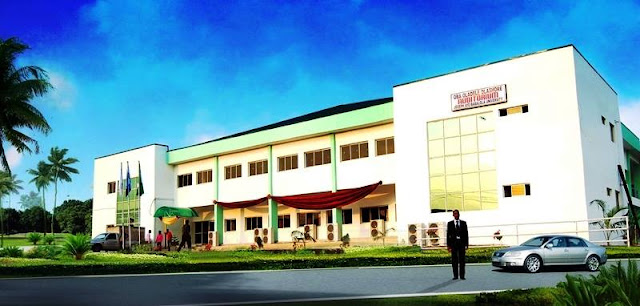
What is the lasting solution to the dichotomy between university and polytechnic graduates?
The issue of dichotomy should be tackled headlong because the polytechnic graduate actually spends five years: two years national diploma, one year compulsory industrial attachment, and another two years higher national diploma. The dichotomy tends to create inferiority complex or controversy; it should be totally eliminated.
The issue of HND holders proceeding for Masters degree is another issue that should be looked into because there are many foreign universities that accept polytechnic graduates for direct Masters.
If we produce these graduates, why are they not allowed to proceed for direct Masters? Even if we say they require post-graduate diploma before proceeding for Masters, that is okay, but if they are employed as lecturers, there should be no reference to the fact that they did not have first degree, that is where the dichotomy comes in and must be addressed.
And there is a need for continuous engagement and exposure to international conferences and training for polytechnic lecturers, technologists and instructors. The Tertiary Education Fund (TETFund ) has tried in this area, all I want is sustainability. I wouldn’t recommend anything new to TETFund because it has been doing very well in this area.
There are concerns about tertiary institutions’ over-dependence on government for funding. What can be done differently to change this trend?
If you talk about funding in Nigerian tertiary institutions and foreign institutions, you are looking at school fees, affordability and workability of it.
In Ghana for instance, how much does a student pay? I think the least you can have in a UK university for a Masters programme is between £17,000 and £20,000; and same applies across virtually all European countries, Canada and the United States. South Africa is another hub for our education seekers, and also very expensive.
So, to talk of self-sustainability through financial generation, one would be talking of increase in tuition, which is not sustainable in Nigeria.
Besides, we run education as a social engagement, if the student has to pay so much as obtained in other countries, when such a student graduates, is there an immediate job for him? And when he gets the job, will he be able to pay this money back?
But despite this, it doesn’t make our students less intelligent, what is lacking is that they may not be exposed to modern learning tools, which are quite expensive. That is where TETFund comes in.
Many of these things are provided by TETFund, which is a Federal Government agency. Government may not directly be disbursing money to the institutions, but it is coming through TETFund.
There have been calls by stakeholders for the review of the curriculum to reflect current trends, what is your take on this?
Curriculum is reviewed virtually every five years, so, the issue of outdated curriculum is not there. But you can talk about some new courses and emerging trends, same with the polytechnics.
As I speak, there is the unbundling of Computer Science in the polytechnics, and Mass Communication in the universities. The same thing is ongoing in colleges of education. So, the issue of outdated curriculum does not arise.
However, there are emerging trends like the new media; digital, Internet and cyber security. Let’s look at Mass Communication for instance, what was taught many years ago in what I call the conventional media era, is not what is being taught now. New courses are being introduced gradually, but it may take us a while to fully adopt them.
Nigerian graduates are seen as unprepared for the labour market and global world; do you share this sentiment?
I have gone to different countries, I have interacted with Nigerian graduates across different continents and their teachers. Nigerian graduates come tops when they go for their post-graduate studies outside Nigeria, and those abroad excel in their various disciplines.
If you go to several universities in the United Kingdom and Canada, you will see many of our graduates who are doing well. Many of us graduated from this country; I am a graduate of this country, I have won several awards across the world. You are a graduate of this country and doing well, so that notion is wrong.
Are we saying those people who are doing well in other sectors came from outside the country? The answer is no. The Nigerian graduate has the intellect, what he may be lacking are the tools.
A Nigerian graduate who studied Mechanical Engineering, for instance, may understand everything, but the workshop may not be well-equipped compared to UK and American universities, but that does not make him “half-baked.”
Some stakeholders have tagged the growing trend of converting polytechnics to universities as a ploy to erode technical education in the country. Are you not concerned?
I don’t see anything wrong with that. United Kingdom converted all her polytechnics to universities. I was in Ghana recently, it converted many of its institutions to technical universities. What I will recommend is that we call them technical universities. They will still offer same courses since the entry requirements are almost the same. So, those who want to go to polytechnics can go to technical universities. It is just a little upgrade on the curriculum and profile of the academic staff. It happens in other places: South Africa, Kenya, and Uganda. It is just a nomenclature and status conferral.






